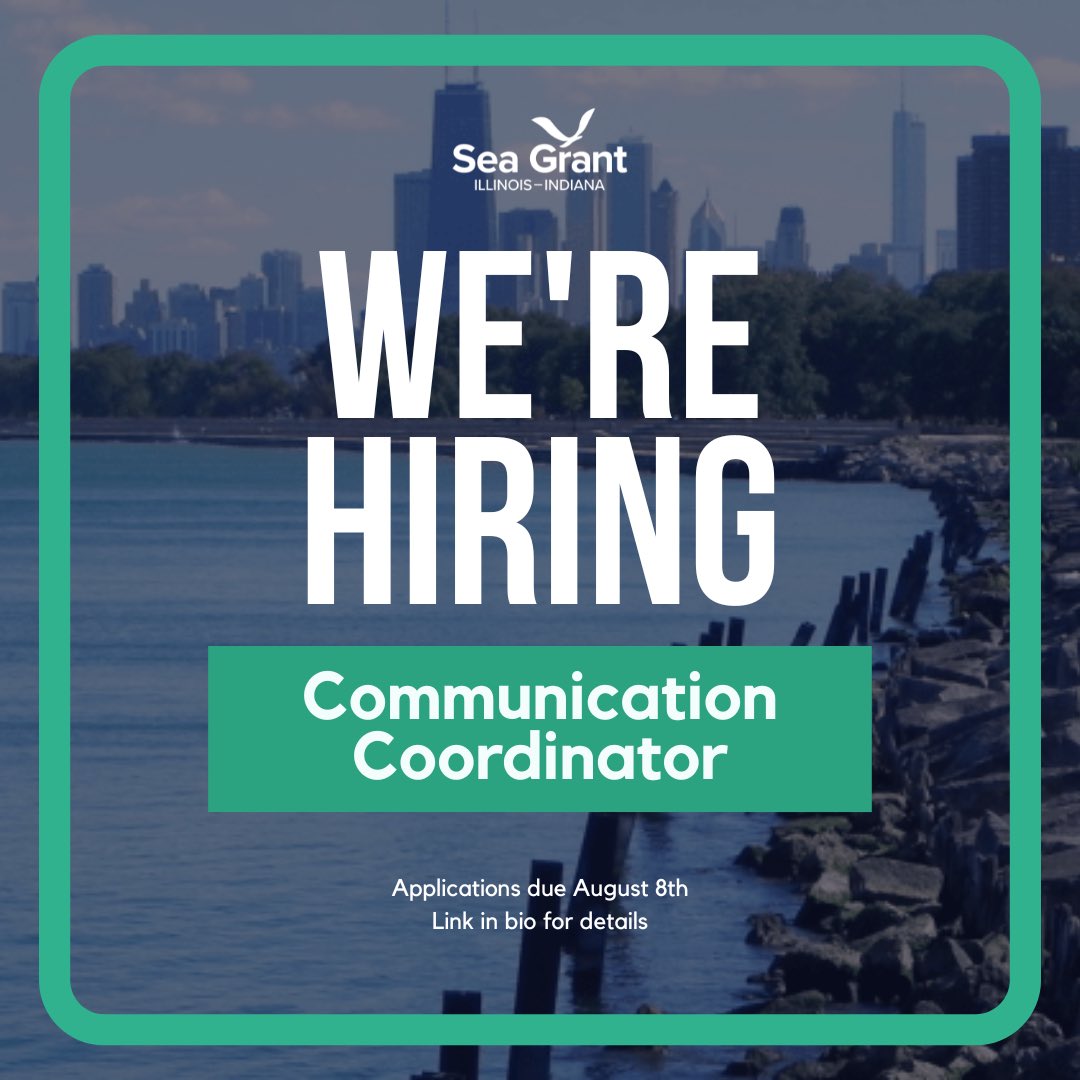March 31st, 2020 by Hope Charters
As a follow-up to the last podcast episode about the COVID-19 pandemic in which we talked to an epidemiologist, we get another perspective on COVID-19 and outdoor recreation, this time from E.R. resident Dr. Frank Zadravecz. What’s it like to be in the emergency department of a hospital during this time? How are hospitals handling general emergencies and an influx of COVID-19 patients all at once? What everyday risks should we be considering to keep ourselves out of the hospital and avoid overburdening the healthcare system?
In this episode of Teach Me About the Great Lakes, titled “A Lot of This Is in Our Own Hands,” Illinois-Indiana Sea Grant’s Stuart Carlton and Hope Charters talk with Frank Zadravecz, a former epidemiologist who is now an emergency medicine resident at University of Utah School of Medicine. Zadravecz explains the benefits of social distancing during the early phase of a pandemic, how viewing yourself as the exception can create a snowball effect and what type of risks you take when choosing outdoor activities.
“If you think about the time of the year that we’re in, you know, where places in the Northern Hemisphere are starting to get warmer, we would naturally see an increase in outdoor activity for most populations or groups of people at this point,” said Zadravecz. “Interestingly, in the emergency department, we see a lot of this seasonality. Right about now and into the summer, we’ll start to see more injuries related to outdoor activity, more broken bones, more motor vehicle accidents here in Utah, we start seeing a lot of ATV accidents, mountain bike accidents, climbing accidents, etc. And so when you think about where you are getting your outdoor experience at the moment, it’s really important to think about those additional risks. Those additional risks are potentially overburdening emergency departments [during this critical time].”
If you are looking for information about coronavirus and COVID-19, we encourage you to turn to reputable sources such as your state’s health department.
Teach Me About the Great Lakes is a monthly podcast in which Carlton—a social scientist who grew up in the South near the Gulf of Mexico—asks people to explain the biology, ecology and natural history of the Great Lakes. A new episode will be released on the first Monday of each month. The latest episode is embedded below.
Love this episode and want to hear more in the future? Subscribe on Apple Podcasts or Spotify, or use the RSS feed in your favorite podcast player.
If you have questions you want answered about the Great Lakes, reach out to @TeachGreatLakes on Twitter or email Stuart Carlton at jsc@purdue.edu.
Illinois-Indiana Sea Grant is a part of University of Illinois Extension and Purdue Extension.
March 24th, 2020 by Hope Charters
The COVID-19 pandemic has people all around the world staying indoors, whether out of personal choice to avoid the risks or because of government-enacted “shelter in place” policies like those in Illinois and Indiana. But being inside for long periods of time can drive some people stir crazy.
In this episode of
Teach Me About the Great Lakes, titled “We’re All in This Together,” Illinois-Indiana Sea Grant’s Stuart Carlton and Hope Charters talk with
Ron Hershow, director of the Division of Epidemiology and Biostatistics at the University of Illinois at Chicago’s School of Public Health. Hershow explains the risks and benefits of going outdoors during a pandemic like the one the world is experiencing with COVID-19.
“We have to change our sensibilities and our ways of approaching life for the next few weeks and months,” said Hershow. “I think the greater success we have in doing that, the better success we’ll have at decreasing the impact of this virus and keeping our health systems open and not overwhelmed.”
If you are looking for information about coronavirus and COVID-19, we encourage you to turn to reputable sources such as your state’s health department. Or, as our guest says, when Dr. Anthony Fauci speaks, perk your ears up.
Teach Me About the Great Lakes is a monthly podcast in which Carlton—a social scientist who grew up in the South near the Gulf of Mexico—asks people to explain the biology, ecology and natural history of the Great Lakes. A new episode will be released on the first Monday of each month. The latest episode is embedded below.
Love this episode and want to hear more in the future? Subscribe on Apple Podcasts or Spotify, or use the RSS feed in your favorite podcast player.
If you have questions you want answered about the Great Lakes, reach out to @TeachGreatLakes on Twitter or email Stuart Carlton at jsc@purdue.edu.
Illinois-Indiana Sea Grant is a part of University of Illinois Extension and Purdue Extension.
March 19th, 2020 by Hope Charters
Hold on to your gardening hats, sports fans! The NCAA basketball tournament may have been canceled, but the Red Oak Rain Garden team has a surprise for you. We proudly announce our version: MULCH MADNESS. This competition involves 28 flowering native plants battling it out to find out who will make it to the Final Forb. (Yes, that’s a gardening joke!) What flower will be the champion? Your votes will decide.
While we know this isn’t the same as March Madness, we hope all you bracketologists out there will play along and learn about some of our garden’s plants.
HOW TO ENTER
- Download the bracket
- Fill it out with your picks
- Send your completed bracket to kgardin2@illinois.edu by Monday, March 23 at midnight
HOW IT WORKS
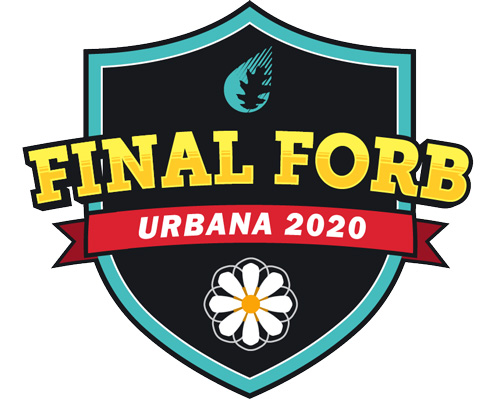 Starting Tuesday, March 24, games will be “played” twice per day: once at noon and another at 4:30 p.m. Vote for your favorite Illinois native plant on either Facebook or Twitter. Polls will be open for 12 hours. You can vote even if you don’t complete a bracket.
Starting Tuesday, March 24, games will be “played” twice per day: once at noon and another at 4:30 p.m. Vote for your favorite Illinois native plant on either Facebook or Twitter. Polls will be open for 12 hours. You can vote even if you don’t complete a bracket.
Votes from both platforms will be compiled to determine the winner of each game. Winners will be announced at 10 a.m. the following morning.
PRIZE
The person with the winning bracket will receive a $20 gift certificate to the local business of their choosing. (So, no matter where you are, you can help out your community in this uncertain time of the COVID-19 outbreak and business closings. The business does need to be able to offer online gift certificates.)
RULES
- One bracket entry per person
- Brackets must be submitted by Monday, March 23 at 11:59 p.m. Games start Tuesday, March 24
- The winning bracket is chosen based on the ESPN Fantasy scoring system
- A correct pick in each round is shown below:
-
- Round 1: 10 points per pick
- Round 2: 20 points per pick
- Round 3: 40 points per pick
- Round 4: 80 points per pick
- Round 5: 160 points per pick
- Championship: 320 points per pick
Reportedly, in the history of the (real) NCAA tournament, no one has ever filled out a perfect bracket. Will YOU be the first with a perfect bracket in MULCH MADNESS?
#MulchMadness2020
Illinois-Indiana Sea Grant is a part of University of Illinois Extension and Purdue Extension.
Writers: Red Oak Rain Garden team, led by Eliana Brown
March 19th, 2020 by Hope Charters
Illinois-Indiana Sea Grant and Illinois Extension Stormwater Specialist Eliana Brown is the facilitator for the Illinois Nutrient Loss Reduction Strategy (NLRS). By using a stakeholder partnership approach, the goal of the NLRS is to reduce nutrient flow from farm fields, wastewater treatment plants and urban stormwater runoff into the Mississippi River. This nutrient runoff makes its way down the river into the Gulf of Mexico, causing a hypoxic dead zone.
Read the full article about this work in Illinois Extension’s Partnering to Improve Water Quality in Illinois by Lisa Merrifield. Excerpt below.
A Farm Bureau lawyer, a Sierra Club scientist, and a wastewater treatment plant operator walk into a conference room . . . It’s no joke. On December 3-4 in Springfield, these three and about 120 more people gathered to hear the latest on Illinois’ Nutrient Loss Reduction Strategy (NLRS). “We were happy to see such a great turnout. Since its adoption in 2015, we have focused on stakeholder partnerships to move the strategy forward. Together, we are greater than the sum of our parts,” says University of Illinois Extension and Illinois-Indiana Sea Grant Specialist and NLRS facilitator, C. Eliana Brown.
Illinois’ NLRS is a statewide strategy to reduce nutrients – mostly nitrogen and phosphorous – that flow into the Mississippi River from farm fields, wastewater treatment plants, and urban stormwater runoff. This nutrient-rich runoff depletes oxygen, causing hypoxia, or the “dead zone,” in the Gulf of Mexico that is unable to support fish and other aquatic life and damages the region’s economy. Illinois isn’t the only state contributing to the problem. All Mississippi River Basin states contribute, and most have strategies to mitigate nutrient loss. “Illinois participates in the Gulf Hypoxia Task Force, which includes twelve states,” says Brown. “Illinois serves as a model for engaging partners, including agricultural, urban and environmental stakeholders. With the third largest city in the nation, and 24 million acres of agricultural land, our state has significant nutrient sources. Therefore, we take the effort to reduce nutrient loss very seriously.”
Strategies to reduce nutrient runoff from Illinois, outlined in the 2015 NLRS plan, are monitored through annual data collections and documented every two years, most recently in November of 2019. Brown notes, “Water quality improvement can take a long time, and the trends aren’t always linear. While many factors affect water quality, some of which universities are just now starting to research, what we do know is that people from all sectors are doing much more now than when we started.”
Read the full article: https://extension.illinois.edu/blogs/building-entrepreneurial-communities/2020-02-25-partnering-improve-water-quality-illinois
Illinois-Indiana Sea Grant is a part of University of Illinois Extension and Purdue Extension.
March 9th, 2020 by Hope Charters
For the last annual reporting period, the Sea Grant program had another very good year. In 2018 alone, nationwide, the program helped to create or sustain more than 7,600 jobs and 1,600 businesses, protected or restored nearly 11,000 acres of habitats, reached 22,469 K-12 students through educational programs and had an overall economic impact of $624.6 million.
While the administration has proposed zeroing out Sea Grant for four consecutive years, the House and Senate has continued to support the program. In fact, throughout its more than half a century run the program has consistently enjoyed strong bipartisan support from members of Congress. With this support, we plan to continue providing strong science-based support for a healthy and vibrant Great Lakes economy and environment for years to come.
If you are so motivated, you may consider communicating with your Congressperson about the value of Sea Grant. If you would like more information about Illinois-Indiana Sea Grant’s success stories in the two states and the region, read our recent impacts booklet or 2-page summaries of our work.
The Great Lakes Sea Grant programs are focused on pressing regional concerns, and right now, we are keeping our eyes on high lake levels. According to NOAA, in February, the Lake Michigan water level broke a 32-year record by about 5.5 inches. For some perspective on the rate of increase, in January of 2020, the lake was 18 inches higher than in January of 2019. High lake levels, along with dangerous wave action, can cause beach erosion, flooding and water safety concerns.
To learn more about potential impacts, we have joined with Wisconsin Sea Grant and Michigan Sea Grant to fund a project to study physical, hydrodynamic and social issues related to coastal erosion along Lake Michigan shorelines. This multi-state effort will focus on a number of questions related to this timely issue. We are also investigating other ways that we can provide science-based information to residents and decision makers.
I hope you enjoy reading our new Illinois-Indiana Sea Grant quarterly e-newsletter. This issue highlights several research projects, including a look at the interaction of microplastics and PFAS in Great Lakes waters and a social science study about what motivates people to take action to protect water quality. Addressing another timely issue, as water rates around the country increase, we have helped develop resources to help communities address water affordability concerns. You can also learn about the American Citizen Planner program in Indiana that provides training for public officials and volunteers on processes of comprehensive planning.
Tomas Höök
Director, Illinois-Indiana Sea Grant
Illinois-Indiana Sea Grant is a part of University of Illinois Extension and Purdue Extension.
March 2nd, 2020 by Hope Charters
During the winter, our minds naturally turn to the cold and snow because it’s, well, cold and snowy. But what causes the most extreme cold and snow?
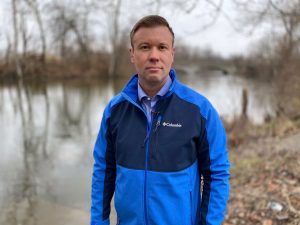
In this episode of
Teach Me About the Great Lakes, titled “That Long Fetch Setup,” Illinois-Indiana Sea Grant’s Stuart Carlton and Carolyn Foley talk with
Tom Coomes, chief meteorologist for ABC 57 in South Bend, Indiana. Coomes explains the polar vortex, lake-effect snow and the importance of learning from your mistakes.
Teach Me About the Great Lakes is a monthly podcast in which Carlton—a social scientist who grew up in the South near the Gulf of Mexico—asks people to explain the biology, ecology and natural history of the Great Lakes. A new episode will be released on the first Monday of each month. The latest episode is embedded below.
Love this episode and want to hear more in the future? Subscribe on Apple Podcasts or Spotify, or use the RSS feed in your favorite podcast player.
If you have questions you want answered about the Great Lakes, reach out to @TeachGreatLakes on Twitter or email Stuart Carlton at jsc@purdue.edu.
Illinois-Indiana Sea Grant is a part of University of Illinois Extension and Purdue Extension.
March 2nd, 2020 by Hope Charters
Interested in fishing? Illinois-Indiana Sea Grant is hosting a series of Lake Michigan fisheries workshops in March. Anglers, charter captains, and lake enthusiasts are all invited to attend these free events. No registration is required.
Michigan City, Indiana
When: Wednesday, March 4, 6:00 – 8:30pm CT
Where: City Hall, 100 E Michigan Blvd, Michigan City, IN 46360
Topics: Steelhead movement, predator diets, yellow perch populations, cisco and lake whitefish competition
Speakers: Benjamin Rook (USGS Great Lakes Science Center), Ben Breaker (Central Michigan University), Scott Koenigbauer (Purdue University), Jacob Sawecki (Michigan State University), Mitchell Zischke (Purdue University, Illinois-Indiana Sea Grant)
Partners: City of Michigan City, United States Geological Survey, Central Michigan University, Michigan State University, Purdue University, Illinois-Indiana Sea Grant
Chicago, Illinois
When: Tuesday, March 10, 6:00 – 8:30pm CT
Where: Chicago Maritime Museum, 1200 W 35th St, Chicago, IL 60609
Topics: Lake Michigan story map, yellow perch and sucker populations, trophy salmon and trout in Illinois
Speakers: Kristin TePas (University of Illinois, Illinois-Indiana Sea Grant), Charlie Roswell (Illinois Natural History Survey), Scott Koenigbauer (Purdue University), Karen Murchie (Shedd Aquarium)
Partners: Chicago Maritime Museum, Illinois Natural History Survey, Shedd Aquarium, Purdue University, University of Illinois, Illinois-Indiana Sea Grant
Winthrop Harbor, Illinois
When: Wednesday, March 11, 6:00 – 8:30pm CT
Where: Winthrop Harbor Yacht Club, 301 North Point Dr, Winthrop Harbor, IL 60096
Topics: Trophy salmon and trout in Illinois, predator diets, yellow perch populations, Lake Michigan story map
Speakers: Kristin TePas (University of Illinois, Illinois-Indiana Sea Grant), Charlie Roswell (Illinois Natural History Survey), Greg Byford (Michigan State University), Austin Happel (Shedd Aquarium)
Partners: Winthrop Harbor Yacht Club, Michigan State University, Shedd Aquarium, Illinois Natural History Survey, Purdue University, University of Illinois, Illinois-Indiana Sea Grant
Illinois-Indiana Sea Grant is a part of University of Illinois Extension and Purdue Extension.
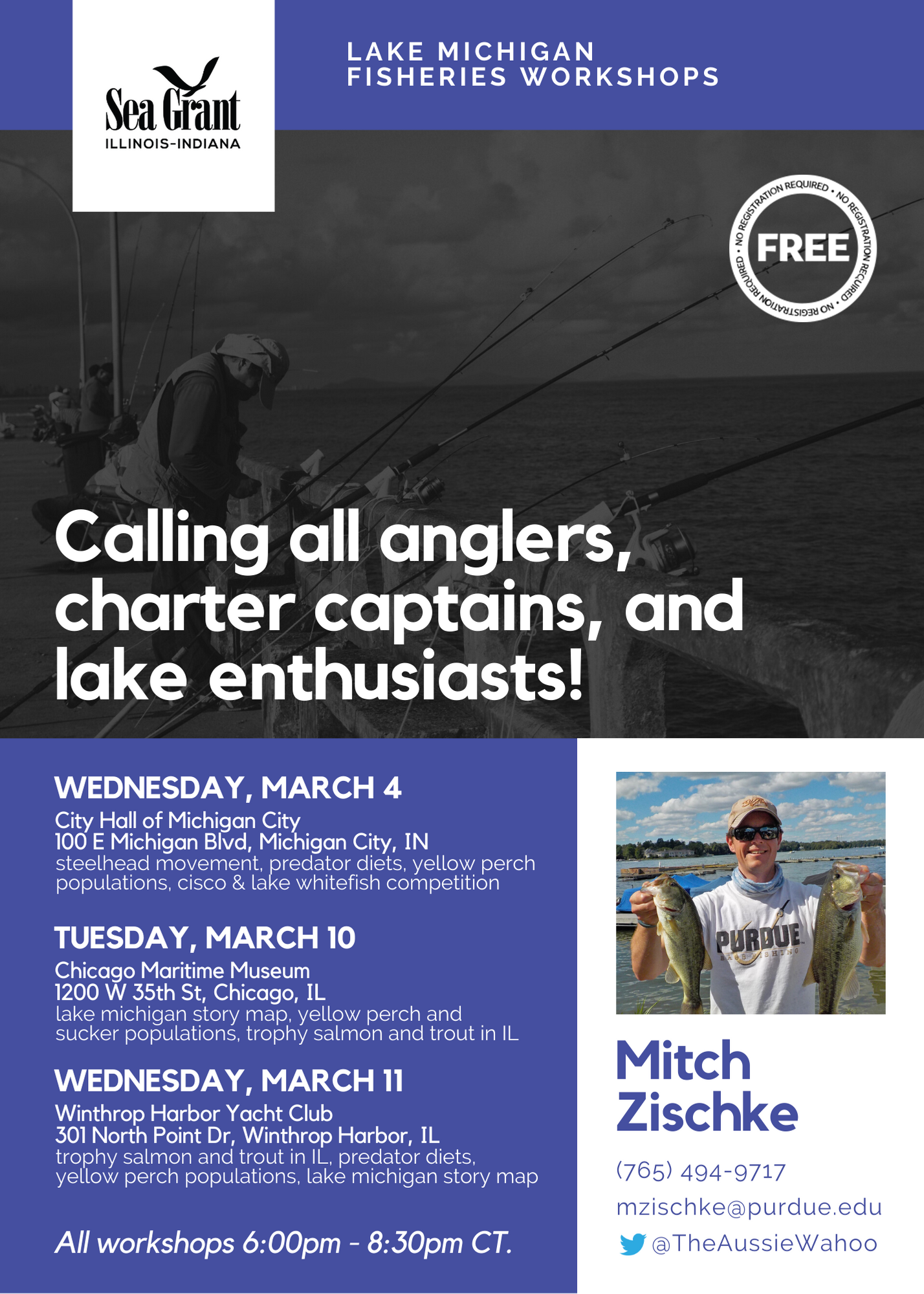
February 3rd, 2020 by Hope Charters
The National Sea Grant Office periodically requests proposals for research and outreach projects in topics of regional and national importance. Competitions have recently opened for research to address economic and market needs of the aquaculture industry in the United States and for research to address critical gaps in knowledge about how the American lobster is impacted by environmental change.
ADDRESSING ECONOMIC AND MARKET NEEDS OF THE U.S. AQUACULTURE INDUSTRY
Subject to the availability of funding, Sea Grant anticipates approximately $5,000,000 will be available for research projects and programs that will significantly advance the understanding of the economics of aquaculture businesses in the U.S. and address gaps regarding important market information. The overall goal is to advance business management towards development of a sustainable marine and Great Lakes aquaculture industry in the U.S. Successful proposals will address geographic and/or topical needs and will fully integrate research, extension, and education. Proposals that will support broad, non-proprietary research to address critical gaps with respect to aquaculture economics and market needs; make that information available to U.S. aquaculture businesses and management agencies; and build the capacity of Sea Grant and its partners, including Sea Grant aquaculture extension personnel and industry stakeholders, are preferred.
The full Grant Notice can be found here: https://www.grants.gov/web/grants/view-opportunity.html?oppId=323921.
All proposals to this competition must be submitted by a Sea Grant program. Projects should plan to start September 1, 2020, and can run for up to three years. Interested Illinois- or Indiana-based investigators, or investigators whose work would be applicable in either of these states, should contact Carolyn Foley (cfoley@purdue.edu) or Stuart Carlton (carltons@purdue.edu) with ideas.
Notice to Submit: due by 5:00 pm (local time of lead Sea Grant Program) on February 26, 2020.
Full Proposal Application: due by 11:59 pm Eastern Time on April 22, 2020.
AMERICAN LOBSTER RESEARCH PROGRAM
Subject to the availability of funds, Sea Grant anticipates awarding 5-10 projects totaling between $1 million and $2 million dollars in FY2020 to address critical gaps in knowledge about how the American lobster and its fishery are being impacted by environmental change. Projects must have a maximum duration of two years. Any individual; any public or private corporation, partnership or other association or entity (including any Sea Grant College, Sea Grant Institute or other institution); or any State, political subdivision of a State, Tribal government or agency or officer thereof can participate in this funding opportunity. More details can be found on our Funding Opportunities page.
Illinois-Indiana Sea Grant is a part of University of Illinois Extension and Purdue Extension.
February 3rd, 2020 by Hope Charters
The Great Lakes have over 10,000 miles of shoreline between them. What can you learn by walking that shoreline?
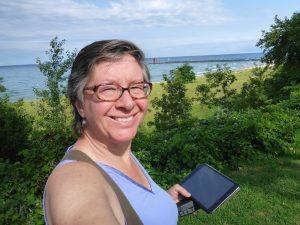
In the third episode of
Teach Me About the Great Lakes, titled “It Would Have to Be the Perfect Rock,” Illinois-Indiana Sea Grant’s Stuart Carlton and Hope Charters talk with
Loreen Niewenhuis, an author and adventurer who spends her time walking in and around the Great Lakes. Loreen, Stuart and Hope talk about her walk around Lake Michigan, her island adventures and the importance of shoes with a good toe box.
Teach Me About the Great Lakes is a monthly podcast in which Carlton—a social scientist who grew up in the South near the Gulf of Mexico—asks people to explain the biology, ecology and natural history of the Great Lakes. A new episode will be released on the first Monday of each month. The latest episode is embedded below.
Love this episode and want to hear more in the future? Subscribe on Apple Podcasts or Spotify, or use the RSS feed in your favorite podcast player.
If you have questions you want answered about the Great Lakes, reach out to @TeachGreatLakes on Twitter or email Stuart Carlton at jsc@purdue.edu.
Illinois-Indiana Sea Grant is a part of University of Illinois Extension and Purdue Extension.

 Starting Tuesday, March 24, games will be “played” twice per day: once at noon and another at 4:30 p.m. Vote for your favorite Illinois native plant on either
Starting Tuesday, March 24, games will be “played” twice per day: once at noon and another at 4:30 p.m. Vote for your favorite Illinois native plant on either  In this episode of
In this episode of 
 In the third episode of
In the third episode of 